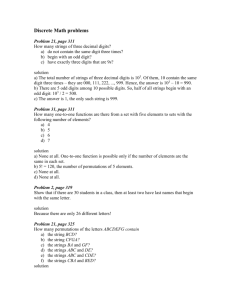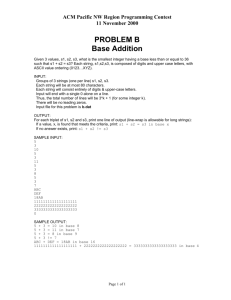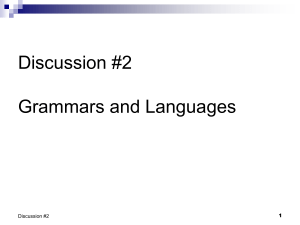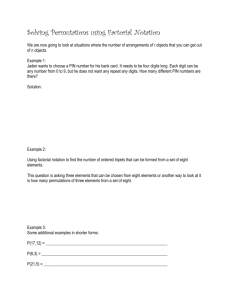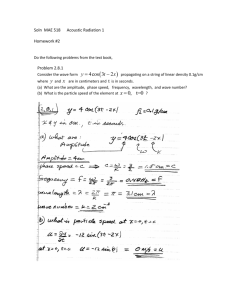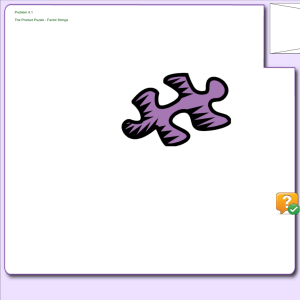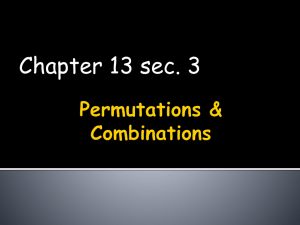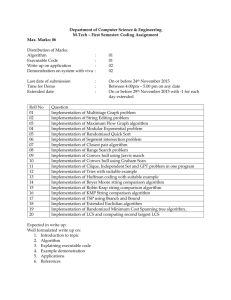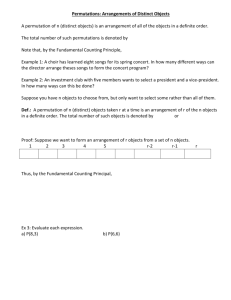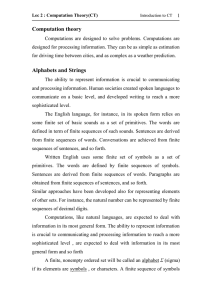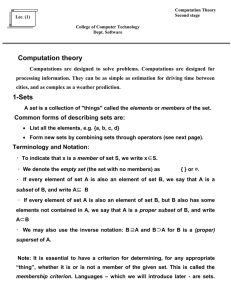PERMUTATION STRINGS
advertisement
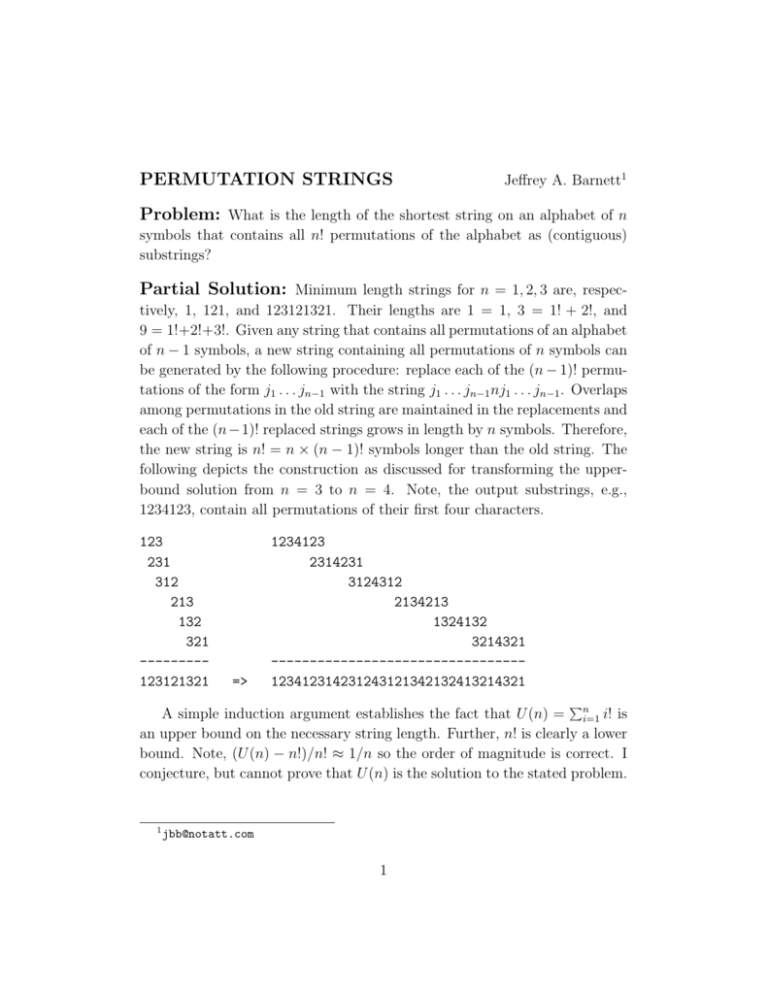
PERMUTATION STRINGS Jeffrey A. Barnett1 Problem: What is the length of the shortest string on an alphabet of n symbols that contains all n! permutations of the alphabet as (contiguous) substrings? Partial Solution: Minimum length strings for n = 1, 2, 3 are, respectively, 1, 121, and 123121321. Their lengths are 1 = 1, 3 = 1! + 2!, and 9 = 1!+2!+3!. Given any string that contains all permutations of an alphabet of n − 1 symbols, a new string containing all permutations of n symbols can be generated by the following procedure: replace each of the (n − 1)! permutations of the form j1 . . . jn−1 with the string j1 . . . jn−1 nj1 . . . jn−1 . Overlaps among permutations in the old string are maintained in the replacements and each of the (n − 1)! replaced strings grows in length by n symbols. Therefore, the new string is n! = n × (n − 1)! symbols longer than the old string. The following depicts the construction as discussed for transforming the upperbound solution from n = 3 to n = 4. Note, the output substrings, e.g., 1234123, contain all permutations of their first four characters. 123 231 312 213 132 321 --------123121321 => 1234123 2314231 3124312 2134213 1324132 3214321 --------------------------------123412314231243121342132413214321 A simple induction argument establishes the fact that U (n) = ni=1 i! is an upper bound on the necessary string length. Further, n! is clearly a lower bound. Note, (U (n) − n!)/n! ≈ 1/n so the order of magnitude is correct. I conjecture, but cannot prove that U (n) is the solution to the stated problem. P 1 jbb@notatt.com 1

